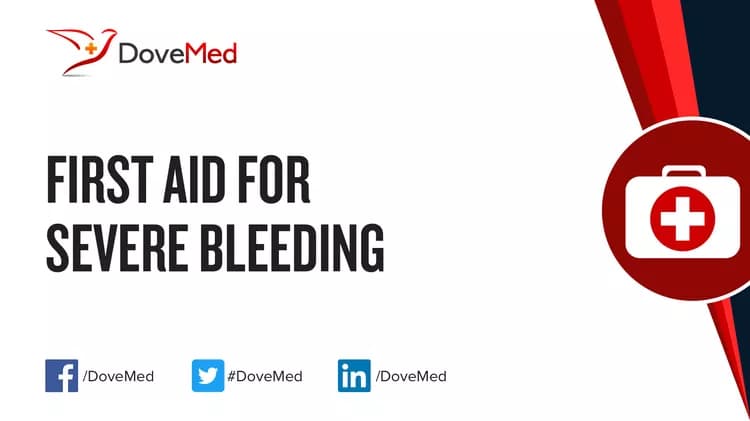
First Aid for Severe Bleeding
IMPORTANT INFORMATION: Read This First
All cases of Severe Bleeding should be evaluated by a trained medical professional, as soon as possible! DO NOT wait! Failure to obtain evaluation as soon as possible may result in serious injury or death. Call 911 (or your local emergency number) immediately, if you are experiencing Severe Bleeding.
What is Severe Bleeding?
- Severe Bleeding is associated with a loss of excessive amount of blood. It may be caused by an extensive open wound or damage to a blood vessel, which may take place internally
- This condition can be life-threatening, if a lot of blood is lost. In such situations, prompt and urgent medical care is necessary
What are the Causes of Severe Bleeding?
Severe Bleeding causes include:
- Accidents and injuries
- Bleeding disorders
- Certain medications
- Surgical procedures
What are the Signs and Symptoms of Severe Bleeding?
The signs and symptoms of Severe Bleeding include:
- Bleeding
- Swelling
- Pain
- Blood in urine or stools
- Bleeding from the nose, mouth, or ears
- Dizziness, fatigue, giddiness, confusion
- Loss of consciousness
How is First Aid administered for Severe Bleeding?
First Aid tips for Severe Bleeding include:
- Wash hands and/or wear gloves before administering First Aid to prevent any infections
- Lay the person down with legs slightly elevated
- Cover the person with a blanket, if possible to preserve body heat
- If possible, raise affected body part above the heart level
- Remove any visible dirt or debris from the wound, if possible
- DO NOT try to remove any large objects
- DO NOT try to put any displaced organs back in position
- Try to stop bleeding by applying gentle pressure with bandages or using a clean cloth. Use clean hands, if bandage or cloth is not available
- Continue applying pressure for about 20 minutes without stopping to check, if bleeding has stopped
- Add more bandages or absorbent material if bleeding continues; but, DO NOT remove the bandage or reduce pressure
- Apply pressure directly to the artery to stop bleeding, if above measures fail. Pressure points for arms are above the elbow and below the armpit. Pressure points for legs are behind the knees and in the groin
- Keep applying pressure by keeping fingers flat on the artery
- Immobilize the affected part after bleeding stops and seek medical help
Call 911 (or your local emergency number), if the affected individual is:
- Coughing or vomiting blood
- Having persistent bleeding
- Bleeding from nose, ears, mouth, or vagina
- If there are signs of obvious fractures
- If signs of shock are noticed; like weak/rapid pulse, shallow breathing, weakness, excessive thirst or cool extremities (hands and legs are cold to touch)
- Bruised over the neck, chest, or abdomen
- Suffering from abdominal pain or tenderness, distended abdomen
- Having wounds on the chest, abdomen, or head/skull
Who should administer First Aid for Severe Bleeding?
A person(s) nearby may administer initial First Aid, but one should call 911 (or your local emergency number) or seek medical help immediately.
What is the Prognosis of Severe Bleeding?
The prognosis is dependent on the amount of blood loss and timely manner in which treatment is administered.
How can Severe Bleeding be Prevented?
A few helpful tips for Severe Bleeding include:
- Exercise caution while working with sharp objects
- If you are known to have any bleeding disorders, always use appropriate protective wear to prevent injury
- Wear medication alert bracelets, to help identify whether individuals are on blood thinning medications. This aids in getting appropriate and immediate medical attention
What are certain Crucial Steps to be followed?
- Call 911 (or your local emergency number)
- Stop the bleeding and sterilize the open wound
- Monitor for signs of infection (because some infections/disorders can cause a severe bleeding situation)
Related Articles
Test Your Knowledge
Asked by users
Related Centers
Related Specialties
Related Physicians
Related Procedures
Related Resources
Join DoveHubs
and connect with fellow professionals

0 Comments
Please log in to post a comment.